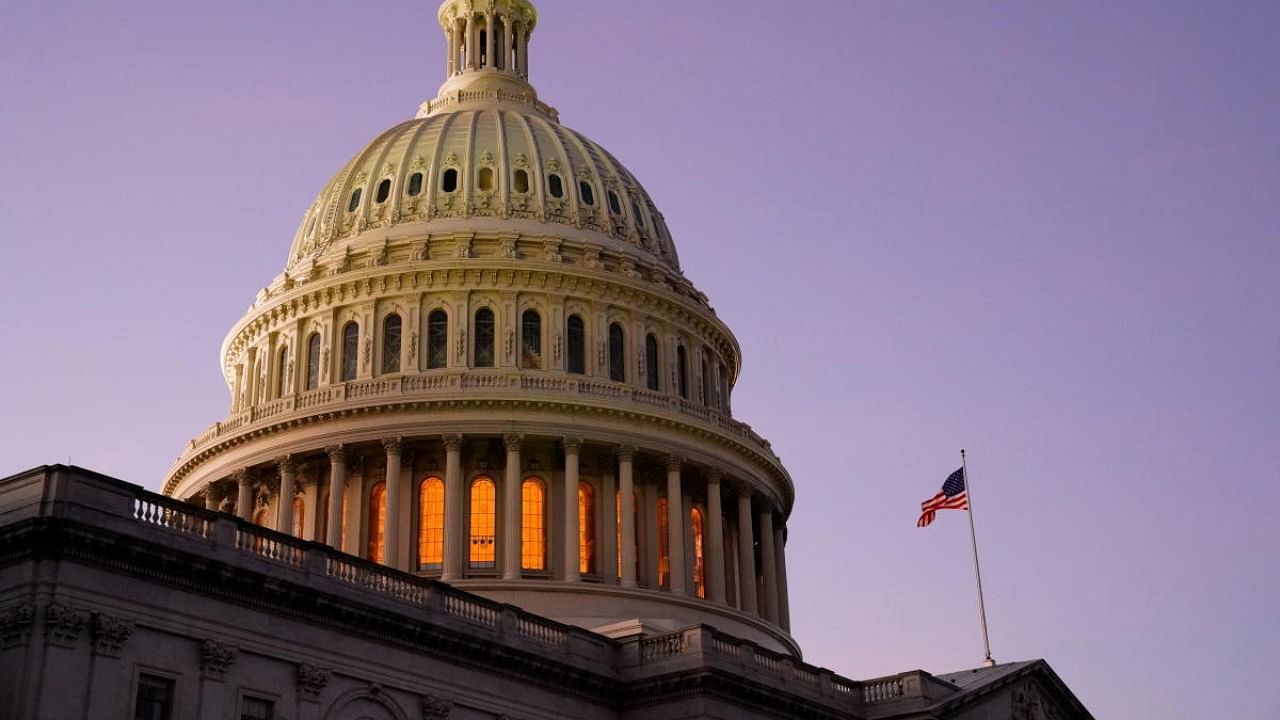
After four years of Donald Trump and a hotly-contested election, President-elect Joe Biden, who was formerly vice-president under Barack Obama, is set to take charge as the 46th President of the United States, with his running mate Kamala Harris will take charge as the Vice President in a ceremony marked by Covid-19, an insurrection at the Capitol and a President who only reluctantly acquiesced to a transition of power.
Here's what you need to know about the inauguration:
What happens at the inauguration?
Joe Biden and Kamala Harris will be sworn in shortly after 12 PM Eastern Time (10:30 PM Indian Time). Biden will be administered the oath by Chief Justice John Roberts, while Harris will be sworn in by Justice Sonia Sotomayor, the first Latina member of the Supreme Court.
Biden, 78, will take the oath on his 127-year-old family Bible, which will be held by his wife, Jill Biden.
Kamala Harris will swear on two Bibles - one that belonged to a close family friend named Regina Shelton and another that belonged to Thurgood Marshall - the country's first African American Supreme Court justice.
What is the time table of the inauguration?
The scaled-down inauguration is expected to begin around 11 am with an invocation by Leo Jeremiah O'Donovan, a Jesuit priest who is a close friend of the Biden family. Andrea Hall, the first African American female firefighter to become captain of the Fire Rescue Department in South Fulton, Georgia, will recite the Pledge of Allegiance.
Singer-dancer Lady Gaga will sing the national anthem and Amanda Gorman, who became the country's first Youth Poet Laureate in 2017, will read a poem she has written for the occasion called The Hill We Climb. She would be followed by a performance by actress-singer Jennifer Lopez.
Silvester Beaman, pastor of Bethel African Methodist Episcopal Church in Wilmington, Delaware, will deliver a benediction.
Who will be present at the inauguration?
Former President George W Bush has confirmed he will travel to Washington for the inauguration, along with Laura Bush, the former First Lady. Former Presidents Barack Obama and Bill Clinton are also expected to attend, along with former First Ladies Michelle Obama and Hillary Clinton.
Jimmy Carter, who at 96 is the oldest living former President, announced that he and his wife would not attend. It will be the first presidential inauguration Carter would missed since he was sworn in in 1977.
While outgoing Vice President Mike Pence will be present at the inauguration, Donald Trump will not be seen at the ceremony, having left Washington for his Mar-a-Lago resort.
Traditionally, the Joint Congressional Committee on Inaugural Ceremonies would distribute hundreds of thousands of tickets to the swearing-in ceremony for members of Congress to invite constituents, but due to Covid-19, this year tickets are not available to members. Planners are urging people to stay home and participate in virtual inaugural events to prevent large crowds that could easily spread the coronavirus.
What happens after the inauguration?
After the swearing-in ceremony, Biden and Harris will attend a traditional Pass in Review with members of the military on the East Front of the Capitol, signifying the peaceful transfer of power to a new commander-in-chief.
Biden, Harris and their spouses will visit Arlington National Cemetery in Virginia, where they will lay a wreath at the Tomb of the Unknown Soldier.
After the wreath ceremony, they will head to the White House, where they will get a presidential escort. That will kick off the virtual "Parade Across America," featuring performances from all 56 states and territories.
Why is a presidential inauguration so important?
The 20th Amendment to the Constitution requires that the term of each elected President and Vice President begin at noon Jan. 20 of the year after the election. Every President has to take the oath of office, and they cannot assume their positions without doing so.
Symbolically, it marks the peaceful transfer of power from the current President to the next. The inauguration day will be all the more important this year, as Biden ascends to the presidency at a time when the political division has threatened the nation’s democratic institutions and his predecessor has gone to extreme lengths to stay in power.
The inauguration is also a notable fundraising opportunity for the incoming President. Although traditional events like balls have been cancelled, Biden’s inaugural committee is offering special “VIP participation” to corporations and well-heeled individuals who can use the opportunity to curry favour with the new administration.
Excess donations cannot be transferred to federal campaigns or party committees. Past inaugural committees have given unspent funds to charities for disaster relief as well as groups that decorate and maintain the White House and the Vice President’s residence.
(With agency inputs)